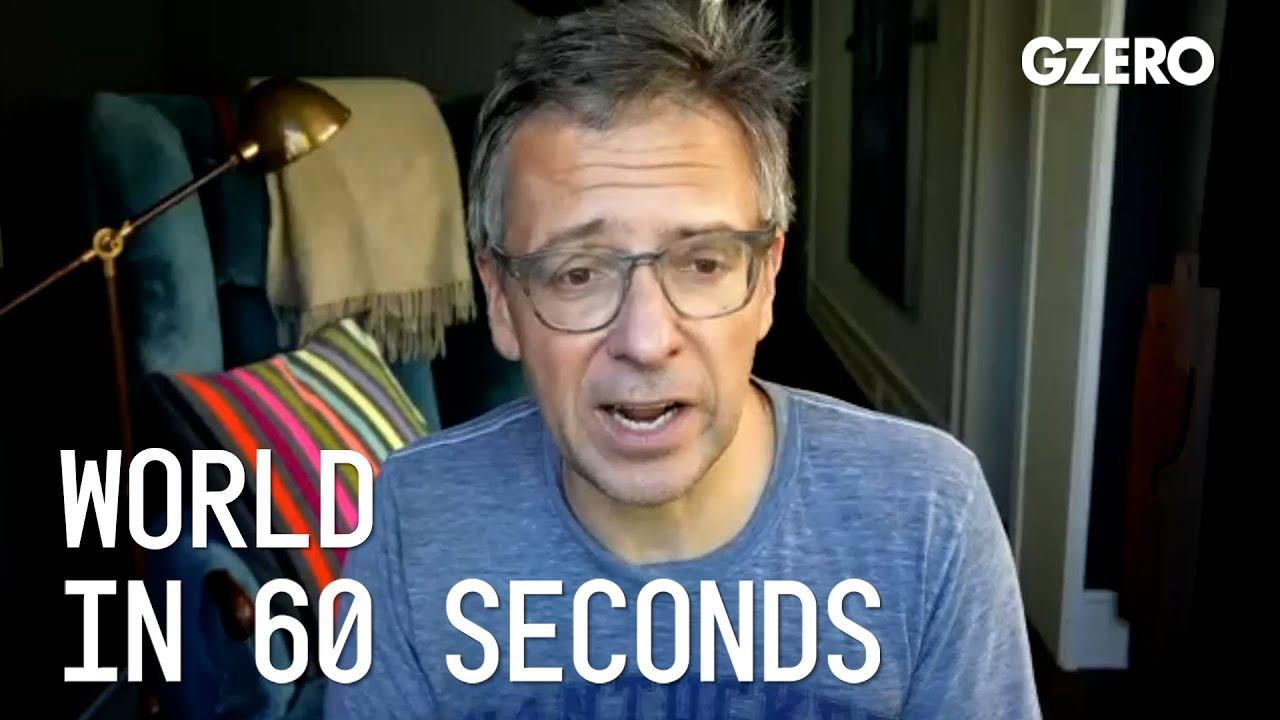With Marcos Jr. about to win the presidency, how will his leadership change the Philippines? Sri Lanka's prime minister resigned. Will its president be next? Is Sinn Féin's victory a sign that a united Ireland is closer? Ian Bremmer shares his insights on global politics this week on World In :60.
With Marcos Jr. about to win the presidency, how will his leadership change the Philippines?
Well, it was a big win, almost 30 points over his opponent, and the first time we've seen an absolute majority in Philippines history for the presidency. Not huge changes expected in governance. Let's keep in mind that the vice president is actually the daughter of President Duterte, who's just leaving power. The president and the vice presidents here are actually... Those elections are held separately, and so you can have different parties that actually win, and frequently do, which is sort of an unusual twist to the Philippines. Pro-foreign direct investment, generally pro-markets, a little bit more of a US and Western tilt as opposed to Duterte, whose military really was skeptical of China, but he personally was more engaged with Beijing. The big question is what's the cabinet going to look like, how independent, how technocratic, or is there going to be a lot of corruption, a lot of kleptocracy? Keeping in mind that Bongbong, the new president, is the son of Ferdinand and Imelda Marcos, who were drummed out for an extraordinary abuse of power in the Philippines before. So what everyone's going to be watching.
Sri Lanka's prime minister resigned. Will its president be next?
Well, I mean, since we're talking about kleptocracy, let's keep in mind that the president is the younger brother of the now resigned prime minister, and they've let go a bunch of... You've got the ministers of finance that have been sort of a revolving door recently. This is the worst economic crisis of Sri Lanka's history. And it's led to a lot of demonstrations, mass protests, a lot of violence, and that's why the PM is gone. But there's also a state of emergency. The military, the police are out in force, the president clearly trying his damnedest to avoid having to step down. And the real question is going to be how explosive the situation on the ground is. Could this become sort of a mass-driven coup, and might you see some splits in the military as a consequence of that?
Is Sinn Féin's victory a sign that a united Ireland is closer?
Well, yeah, of course it's closer in the sense that you now have a party, a Catholic party, that's won for the first time, more history, in Northern Ireland that is interested in a unionist position on Ireland. And Brexit of course did set this off, but a strong majority of citizens in Northern Ireland do not support even a referendum on unification, and certainly don't support unification, though Sinn Féin has said that they'd like to have such a vote within five years. More importantly is that this is going to be used, the Sinn Féin victory, by Boris Johnson and his Tory government to push for changing the rules agreed with the European Union in the breakup, on the border between Northern Ireland and Ireland, Northern Ireland and Europe. And that has the potential to really disrupt, further disrupt, UK-EU trade over the course of the next 12 months. So in the near-term, that's the problem. In the long-term, no question there's more pressure on political devolution and disillusion in the not so United Kingdom.
More For You
How is the US is reshaping global power dynamics, using tariffs and unilateral action to challenge the international order it once led? Michael Froman joins Ian Bremmer on GZERO World to discuss.
Most Popular
In this Quick Take from Munich, Ian Bremmer examines the state of the transatlantic alliance as the 62nd Munich Security Conference concludes.
At the 2026 Munich Security Conference, Brad Smith announces the launch of the Trusted Tech Alliance, a coalition of global technology leaders, including Microsoft, committing to secure cross-border tech flows, ethical governance, and stronger data protections.
